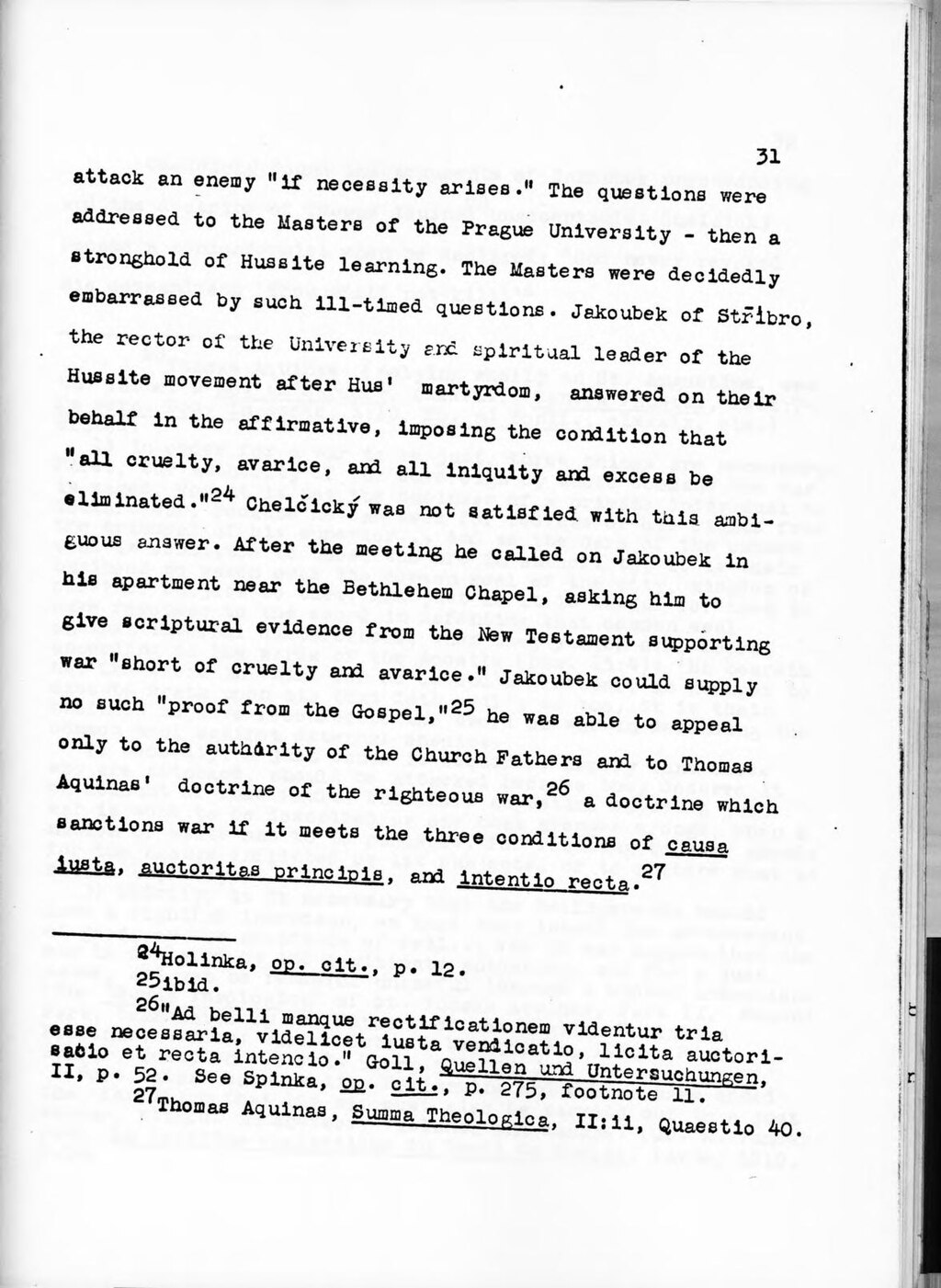attack an enemy "if necessity arises." The questions were addressed to the Masters of the Prague University then a stronghold of Hussite learning. The Masters were decidedly embarrassed by such ill-timed questions. Jakoubek of Str̄i̍bro, the rector of the University and spiritual leader of the Hussite movement after Hus' martyrdom, answered on their behalf in the affirmative, imposing the condition that "all cruelty, avarice, and all iniquity and excess be eliminated."24 Chelčický was not satisfied with this ambiguous answer. After the meeting he called on Jakoubek in his apartment near the Bethlehem Chapel, asking him to give scriptural evidence from the New Testament supporting war "short of cruelty and avarice." Jakoubek could supply no such "proof from the Gospel,"25 he was able to appeal only to the authority of the Church Fathers and to Thomas Aquinas' doctrine of the righteous war,26 a doctrine which sanctions war if it meets the three conditions of causa iusta, auctoritas principis, and intentio recta.27
24 Holinka, op. cit., p. 12.
25 ibid.
26 "Ad belli manque rectificationem videntur tria esse necessaria, videlicet iusta vendicatio, licita auctorisacio et recta intencio." Goll, Quellen und Untersuchungen, II, p. 52. See Spinka, op. cit., p. 275, footnote 11.
27 Thomas Aquinas, Summa Theologica, II:ii, Quaestio 40.
